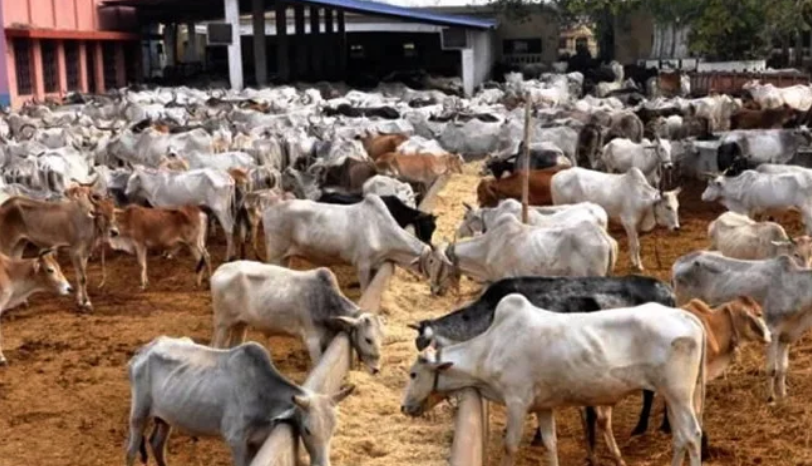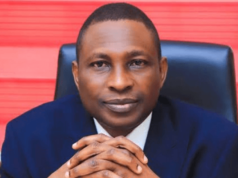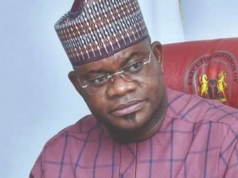
No fewer than 22 states have written to the Federal Government to indicate interest in the National Livestock Transformation Programme.
The Senior Special Assistant to the President on Agriculture, Andrew Kwasari, who also coordinates the NLTP, disclosed this in an interview with The PUNCH on Tuesday, adding that the Federal Government would start disbursing funds for model ranches in the next one week.
According to him, states whose governors have written the Federal Government include, Kaduna, Benue, Taraba, Adamawa, Plateau, Zamfara, Kano, Ondo, Katsina, Bauchi, Yobe, Borno, Gombe, Nasarawa, Niger, Sokoto, Ekiti, Kogi, Ebonyi and Kwara.
Following incessant clashes between farmers and herders, the Federal Government in 2018 came up with various ranching models, including Ruga and the NLTP, to settle nomadic herdsmen, who are mostly Fulani.
On Sunday, the President’s spokesman, Garba Shehu, in a write-up in response to a story published by The Economist of London, said the Federal Government’s ranching programme had reduced insecurity in the country in the last 12 months.
He, therefore, urged state governors, who had not embraced the scheme, to do so
Kwasari said, “I have the list of all the governors, who have written to participate in the NLTP. There are 22 governors, who wrote to express interest in the NLTP.
“That is the first condition in the NLTP document. This project is not just something that is done on paper. There are guidelines as approved by the National Economic Council.”
Although he did not specify the amount that would be disbursed, the presidential aide said two of the states, Nasarawa and Plateau, would be getting financial support from the Federal Government for the establishment of model ranches in about a week.
He stated, “In fact, this morning (Tuesday), I was following up with the accountant-general’s office concerning the pilot money to Nasarawa and Plateau.
“We are expecting the Federal Government to credit Nasarawa and Plateau’s accounts; their sites are ready for take-off to build the first ranch and to train pastoralists in how to build ranches.”
Kwasari said Adamawa and Kaduna states were among the 10 states that had established offices and prepared for the programme.
“The government will support them, but they have their own contributions to make. We are also working with the Dutch Government, which has also given some support,” he added.
The presidential aide explained that the model ranches would be used to train pastoralists and help them build their own ranches.
He noted that some people had described the NLTP as another Ruga project.
He stated, “But the bottom-line is that the NLTP is an ecosystem approach. It has six pillars that address all the things that have gone wrong with our livestock production system.
“I just spoke with the office of the accountant-general and by Friday or in a week’s time, I should be able to tell you that the money has been credited to the Nasarawa and Plateau NLTP accounts.
“I will also be able to tell you when work will start on the model projects; to me, that is the most important thing.”
Kwasari added that states like Nasarawa, Adamawa, Plateau, Taraba, Gombe, Kogi, Kwara and Ondo, which had met the NLTP conditions, should be supported by the Federal Government in establishing model ranches.
Asked how much the Federal Government would give as support, he stated, “To build a pilot ranch for the training of pastoralists and crop farmers costs about N400m.
“However, some states have counterpart funding; for instance, Nasarawa has counterpart funding of up to 50 per cent from the Dutch Government. So, to build the ranch and run it for three years will cost about N400m.”
Animals in the ranches will not be allowed to leave the facility all year round, while households will send in representatives, who will be trained in the model ranches in the pilot states.
Kwasari noted that once the pastoralists were able to get feed and water for their livestock, they would have no business moving cattle from one state to another.
Contents
We’ve submitted business plan, says Ondo
When contacted, the Ondo State Government confirmed that it had submitted its business plan to the NLTP.
The Special Adviser to Governor Rotimi Akeredolu on Agriculture and Agric-business, Mr Akin Olotu, said the decision was in response to the Presidency asking the governors to provide land for ranching.
Olotu, however, did not say if the state would give land for ranching or not, but noted that Ondo was waiting for the NLTP’s action on the business plan.
“We have submitted our business plan to the National Livestock Transformation Programme since last year and we are still waiting for action on their part,” he simply stated.
Animal production a private venture – Enugu
But the Enugu State Government said that rearing cattle was a private venture like every other livestock production business.
The state Commissioner for Agriculture, Mr Matthew Idu, stated this in an interview with one of our correspondents.
When asked if the state government would provide land for ranching, Idu asked, “Is it the Federal Government that is rearing the cattle? There are questions you people shouldn’t be asking; cattle rearing is an individual business, just as you have people rearing fish and other livestock.”
Ekiti has keyed into FG’s NLTP – Commissioner
On his part, the Ekiti State Commissioner for Agriculture, Dr Olabode Adetoyi, said the state already had a ranch at Ikun Ekiti in the Moba Local Government Area of the state.
Adetoyi, who said there had been no discussion on the Federal Government’s appeal to states for land, said, “We already have a ranch at the Ikun Dairy Farm. There is no farm without a ranching facility there. For now, that is what we have on the ground.
“We have keyed into the National Livestock Transformation Plan. The Ikun Dairy Farm is the best ranch that any government can have in the country. It is a public-private partnership between the Ekiti State Government and Promasidor, the makers of Cowbell Milk, where we target the production of 10,000 litres of milk per day. At present, we are producing more than 100,000 litres per month.”
Herdsmen should buy land, Delta insists
The Delta State Government says it supports ranching as a panacea for the herders-farmers’ crises in the country.
The state Commissioner for Information, Charles Aniagwu, stated this in an interview with The PUNCH in Asaba.
He said, “Delta is in total support of ranching, but we do not have land to give. Without ranching, there can’t be any reasonable solution.
“Cattle rearing is a private business and anybody who engages in the business should look for land and acquire it.
“It is not the duty of the government to do so. If we begin to get land for cattle rearing, we should also get land for those who are into poultry and other businesses.”
Katsina earmarks 122,000 hectares for cattle grazing
In Katsina State, there are over 122,000 hectares of land for grazing sites out of which 7,000 hectares are currently being utilised for ranching.
It was also found out that ranching was being executed in 10 local government areas of Batsari, Jibia, Kurfi, Dutsin-ma, Safana, Danmusa, Kankara, Faskari, Sabuwa and Dandume.
Oyo rules out building ranches for herders
The Chief Press Secretary to the Oyo State Governor, Taiwo Adisa, stated that the anti-grazing law enacted by the Seyi Makinde administration would strictly guide livestock production in the state.
He stated, “Oyo State has an anti-open grazing law, which was signed into law in 2019. This has comprehensively spelt out the processes for the establishment of ranches by any intending livestock farmer.
“The Oyo State anti-open grazing law sees ranching as a personal business. Herdsmen are free to apply for land for that purpose.
“The disposition of the Oyo State Government is not in support of giving land for grazing reserves. The grazing control law does not give land, but for the herder to rent and renew land at intervals. The landowner too cannot sell land to any herdsman.”
By Okechukwu Nnodim, Peter Dada, Abiodun Nejo, Raphael Ede, Matthew Ochei, Olaide Oyelude and Olufemi Olaniyi




















































